Stanford University Conference on US Patent System
HOOVER INSTITUTION STANFORD UNIVERSITY
THE US PATENT SYSTEM IN AN INTERNATIONAL PERSPECTIVE
This conference is a part of the Hoover IP2 Working Group, working to review the premises of the US patent system and to address questions of scope, specification, duration, and economic impact of that system. The working group two very fundamental questions: Does the US patent system hold up or push forward the commercialization of technological innovations? and Does the US patent system frustrate or facilitate the inventive acivities and entrepreneurial processes central to economic growth?
During the conference held Monday–Tuesday, January 11–12, 2016 as services working papers were presented and discussed. I had the great honor to present a paper on the fundamental issue of trust and patents markets entitled: “The Language of Trust and Reciprocity in Patent Markets: A Sociological Analysis of Property Rights on Messages Resolving Uncertainty in Exchange in Ideas”.
The papers can be found at:
GMU 2010-
Affiliation with George Mason University and the Interdisciplinary Center for Economic Science since 2010.
Visiting Senior Research Scholar 2010-2014. Assistant Professor 2011-2014, Adjunct Professor from 2015 to today.
Welcome to The Ullberg Report!
This report aims to serve policy makers, economists, and business and university communities and individuals, interested in developing their economies by the exchange of human ideas. (from intro to Trade In Ideas)
At the heart of economic development is technology, providing the solutions that increase productivity in the use of resources. Through the patent system – first established in 1474 and today covering the developed and most developing nations – technology has become tradable in its own rights and we can therefore expect growth in technology to increase by policies designed to create incentives for such trade. These markets are selection mechanisms to help inventors, investors and innovators invest further in the most economically useful technology for the future: Energy, food and information technology being critical in our time.
– The report covers topics related to economic development and the patent system and welcomes suggestions on topics from readers.
– Issues include North-South exchange in technology based on the patent system as a trade system and a higher education agenda.
– The report is free and you can easily sign up using the form on the right side of the home page.
The report’s aims
The report aims at providing a source for policy information on the role of the patent system in economic development, including North-South exchange in technology. The report is based on an ECONOMIC view of the patent system, analyzing current events and, hopefully, providing clarifying information, knowledge and experience in applying a range of economic policy options. The report may therefore be useful for policy makers, government officials, businesses as well as the financial community concerned with funding the next generation of innovations and economic development.
You are welcome to sign up to the report by adding your email. You may also add a special interest, such as news on the proposed Trade In Ideas project of North-South integration through exchange in technology; or discuss topics of interest to your business, nation or inventive activity.
We will start with current research and initiatives for information and then develop the report from there.
Yours truly,
Eskil Ullberg
IFN Brown Bag
On Jan 19, 11:30-12:30, I have been invited to speak at brown-bag seminar at the Research Institute of Industrial Economics, IFN, Grevgatan 34, in Stockholm.
The topic will be Trade In Ideas – Performance and Behavioral Properties of Markets in Patents, covering research published in the book with the same name. The research explores the institutional behavior of organized markets in contacts on patents, based on two economic experiments done at ICES, George Mason University.
A short discussion non institutional and taxation policy in relation to the digital economy will be part of the talk.
All Welcome!
Eskil Ullberg
RATIO 2015-2016
Senior Research Scholar at The Ratio Institute, an independent research institute in Stockholm from Jan 2015-Jun 2016.
The institute’s mission is to develop and distribute new knowledge about (i) the conditions for enterprise – laws, rules and values – , (ii) entrepreneurship, the market economy and growth and (iii) how political change can be achieved.
Book release Dec 2014: New Perspectives on Internationalization and Competitiveness — Integrating Economics, Innovation and Higher Education
Which comes first in a global world economic system: internationalization or internal market competitiveness? Answers to such a broad question demands an interdisciplinary discussion and a more integrated view today, of economics, innovation and higher education.
This book is about the integration of science and technology in an increasingly international and competitive environment for firms, universities and nations. Two workshops were held to discuss internationalization and competitiveness. The purpose was to identify basic problems, i.e. extant in several disciplines, which could help in better integrating economics, innovation and higher education. Fields covering policy and its measurement across economics, strategy, higher education and new research methods where discussed in one joint forum allowing for multiple angles to this over arching theme. Nine papers, which make up a chapter each, are summarized to give a first overview, and four identified basic problems: the including of time to think in economic theory, i.e. creative and operational processes, universities as economic actors, strategic dimension of team work, and agency in measuring innovation. In particular the integration of global markets (including emerging markets), invention/innovation and higher education attracted special interest among participants. The introduction is a first take on these basic problems, which are also inputs to future interdisciplinary research projects, whose results in turn are input to policy and its measurement, and better theoretical economic understanding. The hope is thus that a further discussion will follow, through other publications.
Welcome to participate in the discussion!
Eskil Ullberg, PhD
From the back
This excellent collection of essays provides new insights as to how the development and diffusion of knowledge are facilitating convergence in the structure of research organizations across the globe — a process that has enormous implications for how actors in all parts of the world compete with one another in an increasing array of arenas.
The essays have valuable implications for understanding how producers of all kinds of knowledge across the globe are competing with one another and how geographical space and nation states are less important in the competition for novelty.
Rogers Hollingsworth
University of Wisconsin (Madison)
University of California San Diego
From Introduction (Springer preview)
This book is about the integration of science and technology in an increasingly
international and competitive environment for firms, universities and nations.
Science is here referring to higher education and research. Technology is referring
to technical solutions (which may be patented, trade secrets or “open source”) and
its application in new product and service innovations. What tie these topics together
are economics and their respective measurement, hence the subtitle: integrating
economics, innovation and higher education. This scope makes the book an input to
today’s global socio-economic development in terms of policy and measurement.
The articles and idea papers were originally discussed using a workshop format
to present in an interdisciplinary fashion, areas of current research and thought
related to internationalization and competitiveness with the aim of identifying basic
problems–problems extant in all disciplines–to inform new research projects which
in turn could inform policy.
The contributions to the first workshop were intended to include disciplines from:
economics, higher education, strategic cooperation and culture. In the follow-up
workshop which built on the findings from the first workshop, in particular the strategies,
take a look at those strategies adopted by businesses and governments for institutional
development, emerging market development, faculty entrepreneurship and
Big Data as a research method. (Unfortunately, the culture theme was not possible to
cover in the end. It was replaced by a scientific “culture” of methodologies.)
The papers are organized in two main sections: science and economics, and innovation
policy and its measurement. Within each section are first the policy related
papers and then the measurement related. The 9 papers–a selection from 27 presentations
from both workshops–include 4 with policy focus and 5 with measurement
focus. The structure of the book was inspired by D. North (1981) who contends that
“the second economic revolution” was the integration of science and technology.
A range of problems were discussed during and after the workshops and a few
initial basic problems were identified. These are certainly only a beginning of a long
list and, hopefully, many more basic problems will be identified by the readers of
this book. They are, in short:
1. Time to think: A better balance between the creative process and operational
process, to allow for new solutions to be created. People need “time to think”, to
create “new” which is in contrast to activities on the margin in operations of
“more”.
2. Higher education as economic agents: Policy implications of universities as
input to economic development, in close, international, cooperation with economic
and government agents.
3. Agency in measurement of innovation: Behavioral properties of institutions for
efficiency that includes entrepreneurship. Study of “people x institutions”, not
only institutions needed to include human behavior in policy analysis.
4. The Strategic Dimension of Team work: Diversification of ideas as a new measure:
A structural element that structures higher education and research in more
interdisciplinary ways that facilitates international cooperation, but also between
firms, universities and government, creating increased competitiveness.
The key discussions in each paper, and their relation into this bigger picture of
analysis, are now summarized, after which an outline is presented of each of the
initial basic problems.
New Perspectives on Internationalization and Competitiveness
From the back: This excellent collection of essays provides new insights as to how the development and diffusion of knowledge are facilitating convergence in the structure of research organizations across the globe — a process that has enormous implications for how actors in all parts of the world compete with one another in an increasing array of arenas.
The essays have valuable implications for understanding how producers of all kinds of knowledge across the globe are competing with one another and how geographical space and nation states are less important in the competition for novelty.
Rogers Hollingsworth
University of Wisconsin (Madison)
University of California San Diego
Trade In Ideas
From the back: “This is a book for the times. Never have we been more in need of the wealth creation process that can only come from innovations subjected to the trial and error process of selection to decide what among all the experiments can be supported for further trial.”
–Vernon L. Smith, Nobel Laureate in Economics 2002, Chapman University
Research on Markets in Patents presented in this book called Trade In Ideas – Performance and Behavioral Properties of Markets in Patents.
UN/ECOSOC meeting on Trade In Ideas — Interview on South-South News
Discussion of Trade In Ideas concept at the UN ECOSOC Annual Ministerial Conference, Geneva 2013 in South-South New.Eskil Ullberg, Visiting Senior Research Scholar, George Mason University
Workshop NSF
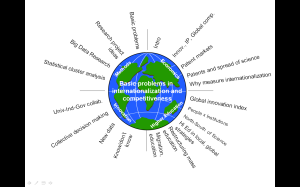
Workshop in DC. For program please follow link to dedicated SSRN web page.
SSRN Link to workshop program and articles
The workshop was funded, and initiated, by NSF. NSF Grant from Science of Science Policy.


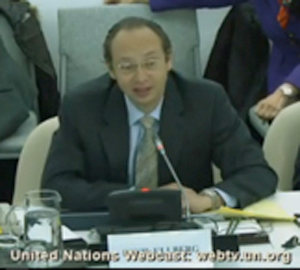






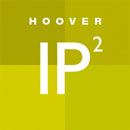
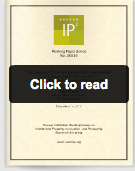
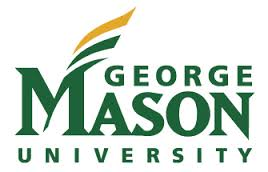
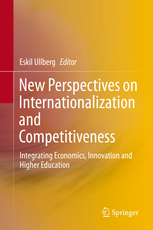
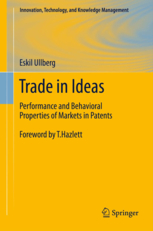
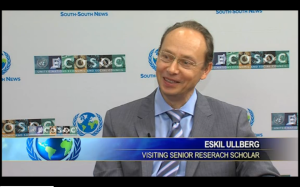







Recent Comments